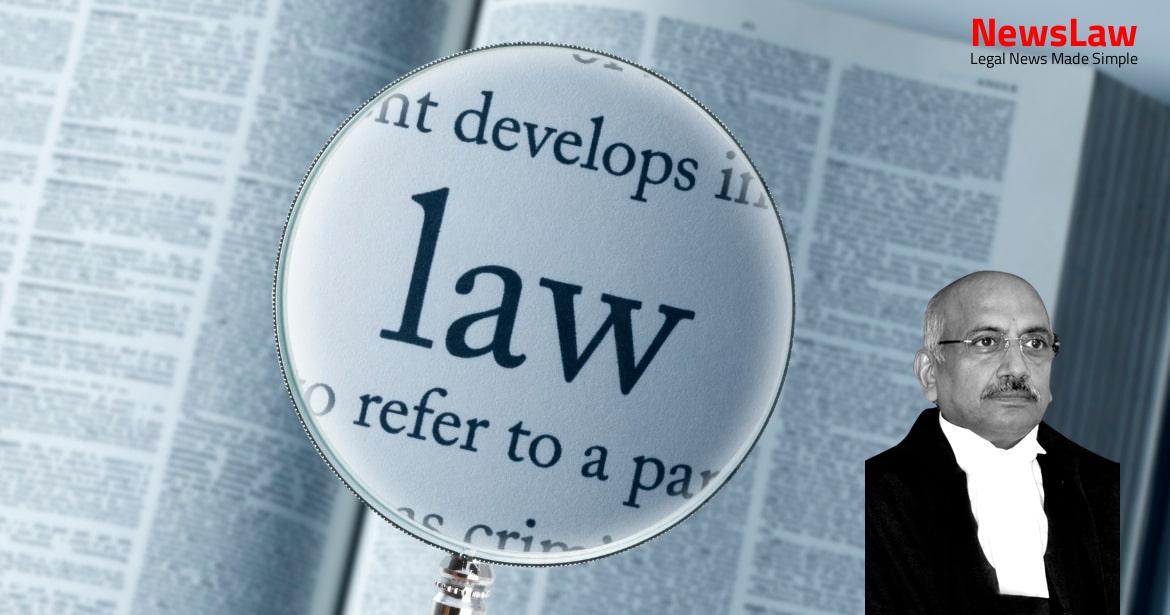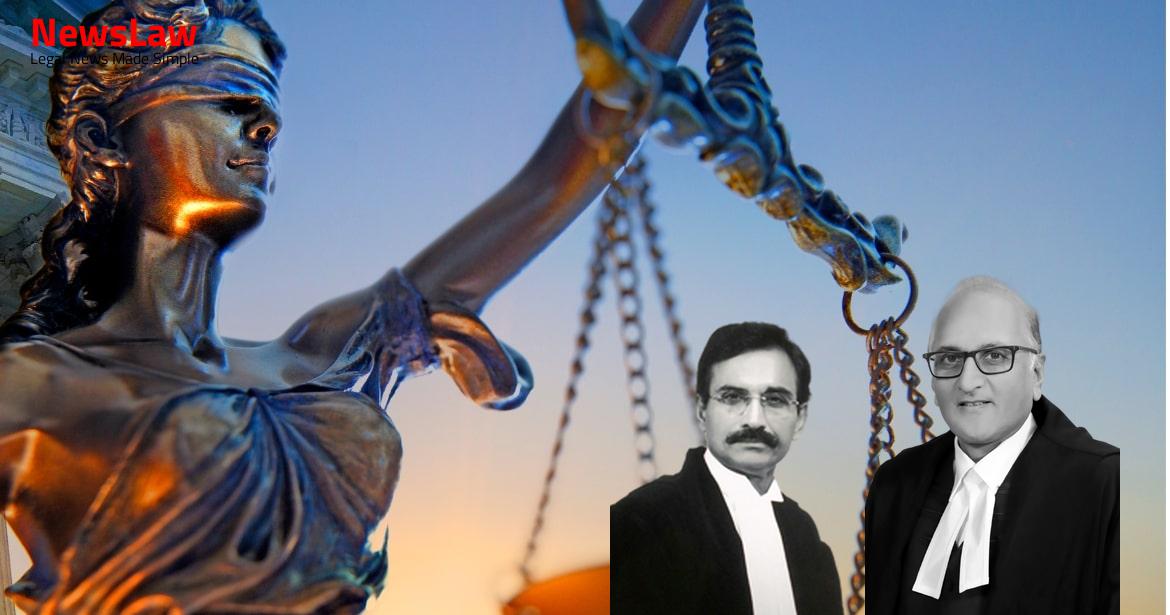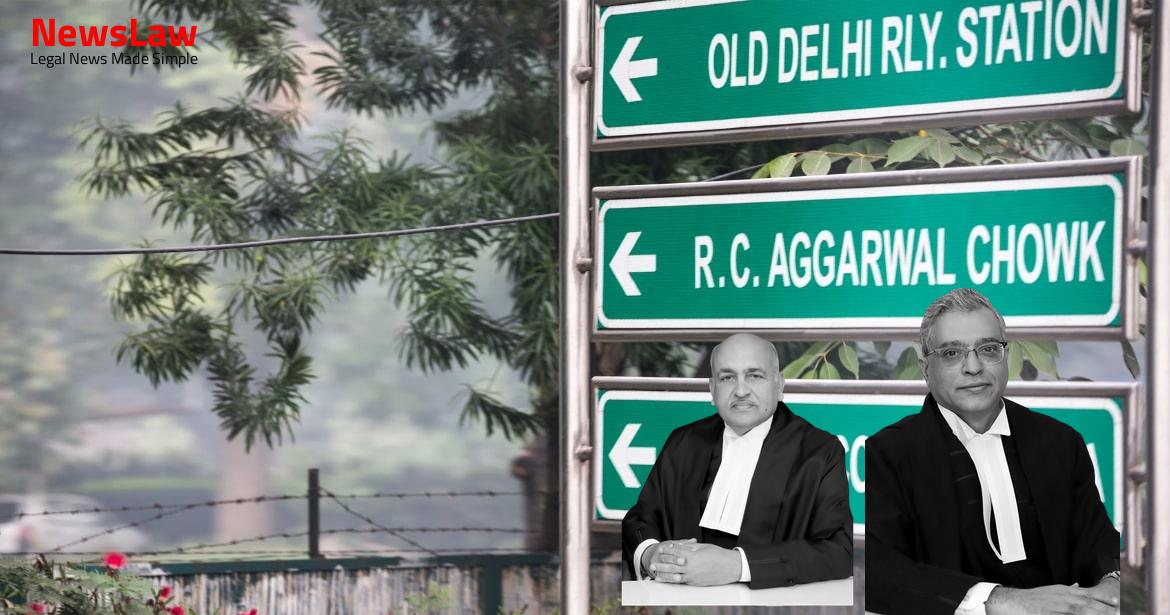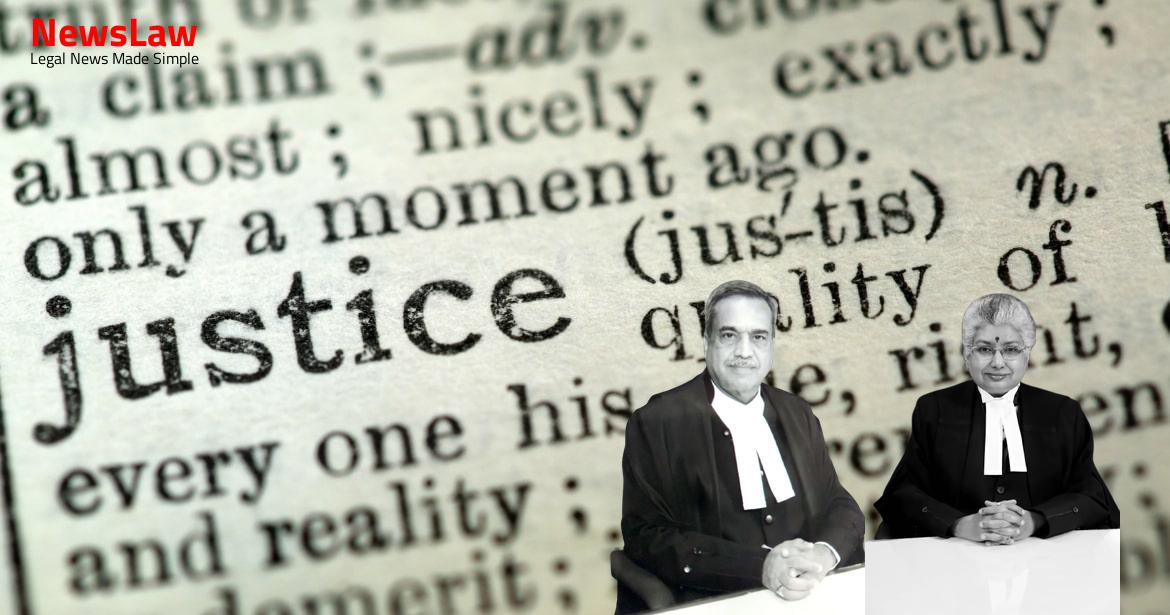In a significant legal battle over the transfer of land belonging to a religious Trust, the Supreme Court of India has delivered its verdict, overturning the High Court’s order. The case involved a dispute regarding the sale of property of the Deity by the Trustees, leading to a civil dispute. Stay tuned to learn more about the Supreme Court’s decision in this pivotal case!
Facts
- High Court found that properties were endowed to the Deity by the Trust Deed of 1948 and Trustees became custodian
- Trust Deeds of 1948 and 1987 were authored by Mahant Shri Janki Jiwan Sharan, with a new Trust Deed in 2005
- Trust was reconstituted in 1987 and again in 2005
- High Court directed CBI to investigate the illegal transfer of Deity’s property
- Trust Deed of 1987 prohibited sale or transfer of Mandir’s land
- PIL filed by a Hindu citizen claiming to protect Deity’s interest
- High Court entertained PIL stating no provision in original Trust Deed for property transfer
- High Court’s directions challenged by Trust and Mandir’s Pujari before this Court
- The High Court determined that the permission granted by Jharkhand State Hindu Religious Trust Board in 2006 was founded on permission obtained through misrepresentation and fraud in 1994 by Bihar State Board of Religious Trust.
- The misrepresentation and fraud in obtaining permission in 1994 were crucial in the subsequent permissions granted in 2006.
Also Read: Anticipatory Bail Application in Different Cases: Landmark Judgment by the Supreme Court of India
Analysis
- The High Court’s finding that the Deity could not transfer its land is deemed untenable.
- High Court exceeded jurisdiction by ordering CBI investigation into property sale of the Deity.
- CBI investigation can only be directed in exceptional circumstances as per State of West Bengal case.
- Permission granted by State functionary does not imply a criminal offense.
- Allegations against Government and Board do not automatically warrant CBI investigation.
- High Court’s suspicion on land transfer by the Deity unjustified.
- Police and public order fall under the State’s jurisdiction, High Court should involve local police first.
- High Court’s directive for CBI investigation lacked proper examination and consideration of complexities.
- Findings on misrepresentation and fraud should not have been casually returned by the High Court.
- High Court should refrain from entertaining Public Interest Litigation on alleged wrongful property sales by religious bodies.
- Appellants rely on statutory provisions like Section 44 of Bihar Hindu Religious Trust Act for land transfer power.
- The Constitution Bench in “State of West Bengal and Others v. Committee for Protection of Democratic Rights, West Bengal and Others” examined the rights of CBI to investigate a criminal offence in a State without its consent.
- The extraordinary power of Constitutional Courts to direct CBI investigations should be exercised rarely in exceptional circumstances, especially when there is lack of confidence in the investigating agency or in the national interest.
- The right to live under Article 21 includes the right to live without police or CBI harassment unless necessary for credibility, instilling confidence, national or international ramifications, complete justice, or enforcing fundamental rights.
- The legislative power of the Union to provide police force of one State to exercise power in another State can only be done with the consent of the Government of that particular State.
- The Court must bear in mind self-imposed limitations on the exercise of constitutional powers conferred by Articles 32 and 226 of the Constitution.
- The High Court can direct CBI inquiry under Article 226 only with sufficient material indicating a need for such inquiry beyond just pleadings.
- Entrusting investigations to CBI should not be solely based on complaints against police officers but requires specific circumstances like involvement of high officials or top officials of the investigating agency influencing the investigation.
- The power to transfer investigations to another agency must be used in rare and exceptional cases to ensure justice between parties and instil confidence in public perception.
- The High Court misdirected itself in ordering the Central Bureau of Investigation to take over the investigation.
- The matter in question pertained to the rights of trustees to sell property of a religious Trust or Deity, leading to a civil dispute.
- The High Court’s decision was not appropriate in the context of a civil matter concerning a religious Trust.
Also Read: Supreme Court of India Dismisses Writ Petition on Arms Export to Israel
Decision
- The appeal has been allowed based on the decision made.
- The High Court’s order has been overturned.
- Consequently, the writ petition has been dismissed.
Also Read: National Task Force for Healthcare Safety: Ensuring Dignity and Protection for Medical Professionals
Case Title: SHREE SHREE RAM JANKI JI ASTHAN TAPOVAN MANDIR Vs. THE STATE OF JHARKHAND
Case Number: C.A. No.-004003-004003 / 2019



